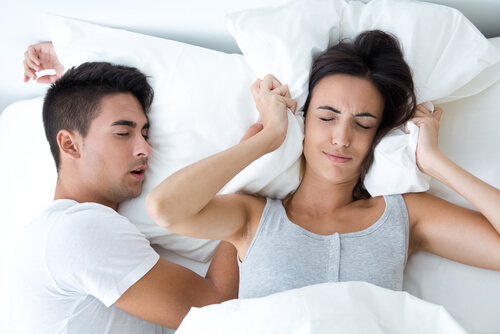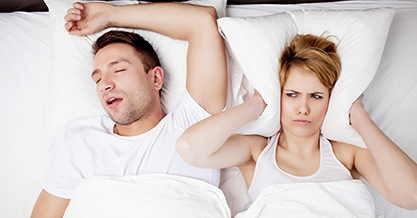 Sleep and rest are two very, very different things. You can get to bed at the time you wanted to and be up for when you planned but it’s no good unless you feel recharged. It doesn’t help if you unconsciously moonlight as the baritone in a growling, grand snore opera.
Sleep and rest are two very, very different things. You can get to bed at the time you wanted to and be up for when you planned but it’s no good unless you feel recharged. It doesn’t help if you unconsciously moonlight as the baritone in a growling, grand snore opera.
Snoring in and of itself isn’t proof positive of some deeper medical condition. That is unless you’re waking up on the wrong side of the bed with nothing but a headache and a sluggish day peppered with yawns ahead of you.
Sleep apnea can really mess with you but it’s easy to catch if you know what to look for.
Sleep Apnea
Snoring and sleep apnea go hand-in-hand but the former doesn’t always precede the latter. To understand sleep apnea, we have to understand snoring, though.
The first thing to understand about snoring is that it’s annoying. No, really – it can contribute to stress both for you and those around you. If the muscles in the back of your throat and mouth relax while your dozing off, your uvula will vibrate and dance around hitting the back of your throat while air tries to make its way in and out. This complex symphony is what keeps us up at night.
Sleep apnea is what happens when all the muscles that are relaxing actually close your throat. It can last from seconds to minutes. Either way, you stop breathing. As creatures that like to breathe, this is pretty scary.
Sleep apnea will lock you into a horrible pattern of sleeping, snoring and then waking up not being able to breathe. It’s easy to see how this can prevent you from getting adequate rest.
Simply being tired doesn’t mean you’ve got sleep apnea. It can be helpful to know how to identify some indicators:
- Waking up gasping – This can happen often throughout the night.
- Headaches – This is as much a sign of fatigue as anything, if this is new it could be a sign.
- Dry Mouth – Because your gasping and snoring isn’t happening in your nose, this is a safe bet.
- Waking up often to use the washroom – Sleep apnea can trigger this.
Other things can contribute to the likeliness of sleep apnea. These can vary from the structure of your septum, your tonsils or even the way your jaw is positioned at night.
It’s important to do something about your restlessness before symptoms like hypertension, risk of heart attack and stroke develop.
Nestled all snug in your bed
Figuring out how to deal with sleep apnea is a complex affair. There are several ways to assess it and you will most certainly require some help. This isn’t one of those things you can self-treat.
Whatever you do, don’t despair. There are tons of options from mild nasal decongestants to complex devices that can help you put your sleepless nights behind you.


